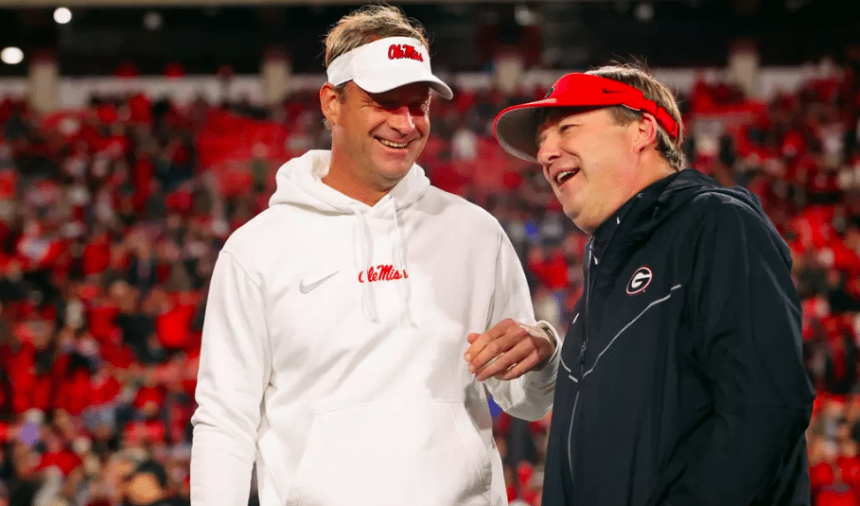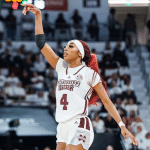College football fans and players in Mississippi will have to adjust to a few rule changes this fall, with the biggest alteration being one that addresses fake injuries.
Spectators who have paid close attention to the sport in recent years are all too familiar with perfectly healthy players dropping to the ground to delay action on the gridiron. This could be to give the defense a breather while slowing the opponent’s momentum or to allow the offense to settle before a big play.

Regardless of the circumstances, the action of faking an injury to momentarily postpone a game has been a hot topic of conversation among coaches, prominent media figures, and social media users alike.
To resolve this issue, the NCAA’s rules oversight panel elected this week to enact the following rule: if medical personnel enter the field to evaluate an injured player after the ball is spotted by the officiating crew for the next play, that player’s team will be charged a timeout. If the team does not have any timeouts remaining, a 5-yard delay-of-game penalty will be assessed.
Mississippians with a vested interest in college football know feigned injuries have been a routine part of the game, especially at Ole Miss, with Lane Kiffin’s Rebels allegedly being one of the main culprits.
This past season, after coaches from Wake Forest, Kentucky, and South Carolina, among others, called Kiffin and company out for their alleged practice of having certain guys drop to the ground to stop the play clock, the Ole Miss Athletics Department released a statement acknowledging that program officials would communicate with league higher-ups on the topic.
Maybe the statement was released due to the SEC implementing a fine structure for coaches who promote players faking injuries. Nonetheless, the scuttlebutt around Oxford has been that the Rebel frontman was exploiting a flawed system to backhandedly promote reform. If that is the case, Kiffin certainly got his way. However, when asked about the new rule on Thursday, the Ole Miss head coach refused to comment, stating that he did not know enough about the regulation to weigh in on it.
In addition to the injury rule, the NCAA addressed overtime timeouts. If a game reaches a third overtime, each team will have one timeout beginning with the third overtime until a winner is determined. Previously, teams were allotted one timeout for each overtime period. At the start of the third overtime, teams alternate running 2-point plays until a winner is decided.
This rule was examined largely due to Georgia head coach Kirby Smart, who used to coach alongside Kiffin at Alabama, utilizing what is now deemed to be an excessive number of timeouts in his team’s eight-overtime 44-42 win over in-state foe Georgia Tech last year.
Other notable rule changes include:
- When the decision on instant replay is announced, the referee will only say that the call on the field is “upheld” or “overturned.” The terms “confirmed” and “stands” will not be used.
- No offensive player can be in the direct line of the snap to the potential kicker or within the frame of the snapper on punts for the formation to qualify as a scrimmage kick formation. If a team is not in scrimmage kick formation, it must have five players numbered 50 through 79 on the line of scrimmage. Additionally, if the snapper is on the end of the line by formation, the snapper will lose scrimmage kick protection, and the opposition can line up a player over the snapper.
- If any player on a kickoff-return team makes a “T” signal with his arms during the kick, the team gives up the right to return the kick, and the play will be whistled dead.
- Enhanced rules regarding simulating action at the snap and words or signals that distract opponents when they are preparing to put the ball in play will also be effective next season. No player can call defensive signals that simulate the sound or cadence of the offensive signals. The defensive terms “move” and “stem” would be reserved for players on that side of the ball and could not be used by the offense.
- After the two-minute timeout in either half, if the defense commits a foul with 12 or more players on the field and all the players participate in the play, the officials will administer a 5-yard penalty. The offensive team would have the option to reset the game clock back to the time at the start of the play. If the 12th player is attempting to leave the field and has no influence on the play, the defensive team will be penalized 5 yards with no adjustment to the game clock.
- Coach-to-player communication, similar to technology implemented for the Football Bowl Subdivision last year, will be a permissive option for teams that compete in the Football Championship Subdivision.
These new rules will go into effect beginning this coming season, which will kick off in late August.







